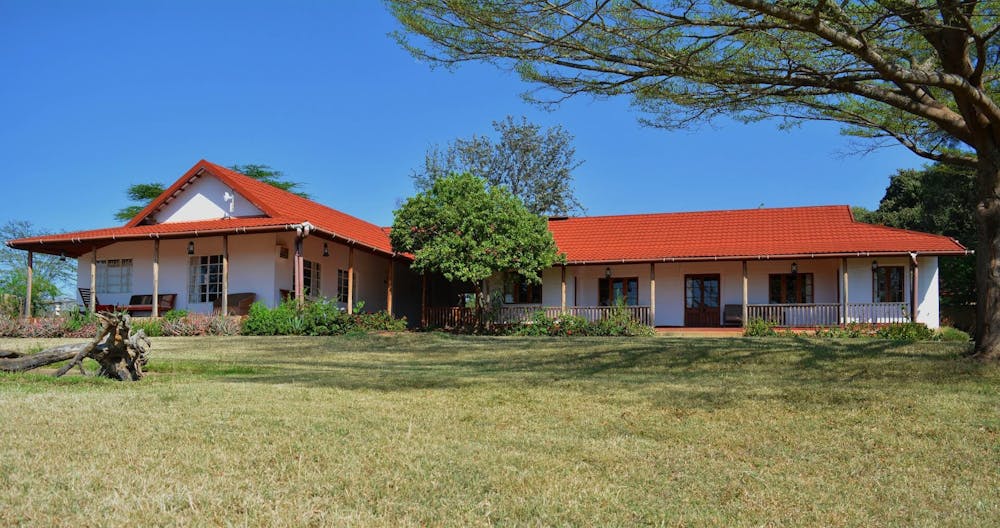The following is a letter to the editor and reflects the author’s views alone. For information on how to submit a piece to the Opinion section, click here.
The Daily Princetonian's Nov. 27 article “At Princeton’s Mpala Research Center, researchers grapple with a colonial legacy” adds to ongoing conversations about the past and the future of the Mpala Research Centre. As members of Mpala’s board, we would like to add to these conversations from our perspective.
One cannot deny the impact of colonialism on Mpala and on every other institution in Kenya. We acknowledge this painful history and we seek to create a more inclusive and sustainable future. There is important work currently underway to position Mpala as a catalyst for high-impact research on the most relevant environmental, sustainability, and human development issues of our time.
As the article states, Mpala is a Kenyan-American partnership. In addition to Princeton University, the founding member institutions are the Kenya Wildlife Service, the National Museums of Kenya, and the Smithsonian Institution. Recently, the Wildlife Research Training Institute of Kenya joined as a fifth partner. Day-to-day management and operations of the Centre are led by Kenyan staff on-site. In 2023, Princeton was one of 65 institutions active at Mpala — 25 of these were African institutions.
Mpala is finalizing its inaugural strategic plan, which lays out a vision that will significantly change the organization’s structure, operations, facilities, and culture. The plan is anchored by three goals that are vital to fostering further improvement and change: purpose, people, and place.
To advance inquiry into some of society’s most important questions, Mpala will continue to enable and disseminate research with real-world relevance and will do so with a greater emphasis on locally relevant research. The Centre will increase engagement with policymakers and will continue to expand its research beyond the natural sciences to include social sciences, engineering, and the humanities.
Further, to assemble one of the world’s most diverse and inclusive research communities, Mpala will continue increasing the involvement of Kenyan and African scholars, at all career stages, to participate in research and teaching at the Centre.
Lastly, to ensure that Mpala’s resources are stewarded in perpetuity for the people of Kenya and the world, the Centre will pursue new opportunities for financial, operational, and environmental sustainability.

Many of the initiatives outlined in the strategic plan are already underway, including an allocation from Princeton to construct 112 units of new staff housing and a solar field to generate clean energy. These initiatives are a precursor to Mpala’s first campus master plan, which will include infrastructure investments in laboratories, classrooms, information technology, roads, and dams. A number of these improvements are in progress.
Mpala is deeply committed to diversifying the population of researchers based at the Centre and will provide additional resources to support this goal. In addition to existing financial aid and subsidies for students and scholars from East Africa, last year Mpala raised graduate fellowship funds to fully support two Kenyan master’s degree students. This winter, we raised funds to support an additional two students. While this is a modest start, we plan to raise a multi-million dollar endowment to support Kenyan and African students and scholars to undertake research at Mpala.
Mpala is also in the midst of expanding its professional staff. In the last two years, Mpala has increased staff capacity through several new roles including a chief research officer, chief financial officer, infrastructure manager, and community outreach officer. Dr. Winnie Kiiru, a widely admired wildlife biologist and advocate for people-centered conservation, became Mpala’s fourth executive director in February 2023.
Our strategic planning process has made it clear that there are incredible opportunities ahead for the students, researchers, scholars, and staff affiliated with Mpala. We look forward to collaborating with our community in Kenya, the United States, and across the world to continue to move forward together in the years and decades to come.

Aly Kassam-Remtulla and Kitili Mbathi write on behalf of the Mpala Research Centre Board of Trustees. Kassam-Remtulla is a Trustee and Chair of the Board. Mbathi is a Trustee and Chair of the Finance Committee of the Mpala Research Centre.








